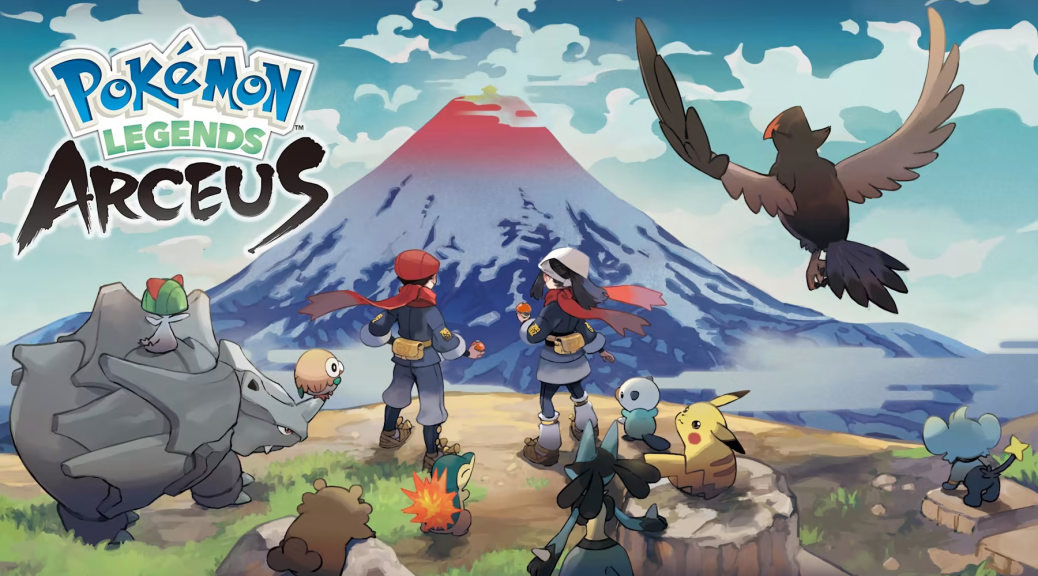
Pokémon Legends: Arceus
I want one of two things from Pokémon games. The first is an official equivalent to Pokémon Showdown, an accessible and immediate entry point to the complex minutiae of competitive play, which will probably never exist. And the second is basically Pokémon Legends: Arceus. Conceptually, at least. In execution, my ideal Pokémon game wouldn’t be so technically amateurish and wouldn’t have writing that makes my eyes do backflips every time someone starts talking. But by implementing the organic, open-ended, and geographically-varied world that Sword and Shield only hinted at, Arceus represents a significant course correction that’s rejuvenated my excitement for the franchise.
While officially a mainline title, Arceus has more in common with the Mystery Dungeon subseries, in that it implements most of the core features of the main series in altered form to accommodate a different flavour of RPG. In this case, the genre is essentially Monster Hunter with Pokémon. Greater emphasis is placed on catching and researching the creatures, and the human protagonist has much stronger gameplay presence. Pokémon behaviour is now much more complex than simply jumping out from tall grass, so the player’s arsenal of tools and techniques for dealing with them has expanded to match. They’ll even directly attack the player character, most notably during boss battles, where you and your team work in tandem to bring down the opponent. It’s also easy to accidentally draw the ire of multiple monsters simultaneously or a superpowered alpha Pokémon. All in all, this is the first game in a long time to make Pokémon feel as mysterious and dangerous as they’re supposed to be.
Like Monster Hunter, Arceus begins very slowly. Unlike Monster Hunter, it speeds up after a few hours and actually becomes enjoyable. For one thing, its controls are only mildly janky instead of unbearably lethargic. The new battle system, where each move can be augmented with “agile” and “strong” variants, offers surprising nuance, although its mechanics are so opaque that it occasionally appears to be outright lying to the player about upcoming events. The emphasis on research means you’re encouraged to regularly shuffle your party, finally finding a way of sidestepping grind that doesn’t completely eliminate the challenge. Even the music started to grow on me around the time the game takes the reins off. The only thing that doesn’t improve is the story. It’s essentially a Pokémon isekai, which isn’t the worst idea in the world, but it’s a bizarrely-structured narrative that routinely glosses over major plot elements in favour of endlessly repeating trivial information.